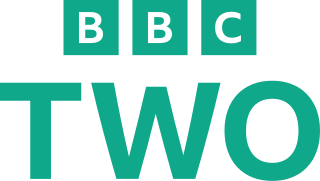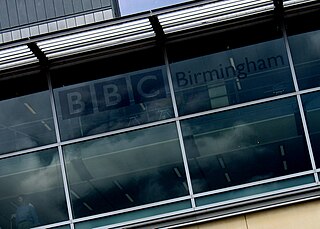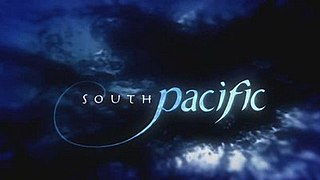Related Research Articles

BBC Two is a British free-to-air public broadcast television channel owned and operated by the BBC. It covers a wide range of subject matter, with a remit "to broadcast programmes of depth and substance" in contrast to the more mainstream and popular BBC One.

Radio Television Hong Kong (RTHK) is the public broadcasting service in Hong Kong. GOW, the predecessor to RTHK, was established in 1928 as the first broadcasting service in Hong Kong. As a government department under the Commerce and Economic Development Bureau of the Hong Kong Government that directly supported by annual government funding, RTHK's educational, entertainment, and public affairs programmes are broadcast on its eight radio channels and five television channels, as well as commercial television channels.

BBC Scotland is a division of the BBC and the main public broadcaster in Scotland.

Television Centre (TVC), alternatively BBC Studioworks Television Centre, is a building complex in White City, West London, which was the headquarters of BBC Television between 1960 and 2013. After a refurbishment, the complex reopened in 2017 with three studios in use for TV production, operated by BBC Studioworks. The first BBC staff moved into the Scenery Block in 1953, and the centre was officially opened on 29 June 1960. It is one of the most readily recognisable facilities of its type, having appeared as the backdrop for many BBC programmes. Parts of the building are Grade II listed, including the central ring and Studio 1.

BBC Birmingham is one of the oldest regional arms of the BBC, located in Birmingham. It was the first region outside London to start broadcasting both the corporation's radio and television transmissions, the latter from the Sutton Coldfield television transmitter.
BBC Choice was a British digital television channel which was owned by the BBC and was launched on 23 September 1998. It was the first British TV channel to broadcast exclusively in digital format, as well as the BBC's second non-analogue-terrestrial channel launch.

Pebble Mill Studios was the BBC's television studio complex located in Edgbaston, Birmingham, England, United Kingdom, which served as the headquarters for BBC Birmingham from 1971 until 2004. The nine-acre site was opened by Princess Anne on 10 June 1971, and in addition to the studios contained two canteens, a post office, gardens, a seven-storey office block, and an outside broadcasting (OB) base.
The BBC Studios Natural History Unit (NHU) is a department of BBC Studios that produces television, radio and online content with a natural history or wildlife theme. It is best known for its highly regarded nature documentaries, including The Blue Planet and Planet Earth, and has a long association with David Attenborough's authored documentaries, starting with 1979's Life on Earth.

BBC iPlayer is a video on demand service from the BBC. The service is available on a wide range of devices, including mobile phones and tablets, personal computers and smart televisions. iPlayer services delivered to UK-based viewers feature no commercial advertising. The terms BBC iPlayer, iPlayer, and BBC Media Player refer to various methods of viewing or listening to the same content. To use the service, a valid TV Licence is required by law.

Evan Harold Davis is a presenter for the BBC, and former economist. He has presented Dragons' Den since 2005, and PM since 2018.

The Gibraltar Broadcasting Corporation (GBC) is Gibraltar's public service broadcaster. It has provided the community with a radio and television service since 1962.
Video Nation was a BBC television project in social anthropology and audience interactivity, which ended in 2011.
Open Door was a programme produced by the BBC's Community Programme Unit. It was first broadcast on 2 April 1973 and ran for a decade until September 1983. The programme gave people brief control of transmission and was a platform for the public to talk about its own issues and give their own views without editorial input from the BBC. The programme was later replaced by Open Space.
Open Space is a programme produced by the BBC's Community Programme Unit. It was an evolution of the earlier Open Door series of programmes allowing minority points of view to make a television programme about issues of concern to them. The programmes were transmitted on BBC2 in a mid-evening slot, usually 8 pm, and would attract audiences between 500,000 and 1,500,000.

BBC Studios Limited is a British content company. It is a commercial subsidiary of the BBC that was formed in April 2018 through the merger of the BBC's commercial production arm and the BBC's commercial international distribution arm, BBC Worldwide. BBC Studios creates, develops, produces, distributes, broadcasts, finances and sells content around the world, returning around £200 million to the BBC annually in dividends and content investment.

The BBC Microcomputer System, or BBC Micro, is a series of microcomputers designed and built by Acorn Computers Limited in the 1980s for the Computer Literacy Project of the BBC. The machine was the focus of a number of educational BBC TV programmes on computer literacy, starting with The Computer Programme in 1982, followed by Making the Most of the Micro, Computers in Control in 1983, and finally Micro Live in 1985.
The British Broadcasting Corporation (BBC) is a British public service broadcaster headquartered at Broadcasting House in London, England. Originally established in 1922 as the British Broadcasting Company, it evolved into its current state with its current name on New Year's Day 1927. The oldest and largest local and global broadcaster by stature and by number of employees, the BBC employs over 21,000 staff in total, of whom approximately 17,900 are in public-sector broadcasting.

South Pacific is a British nature documentary series from the BBC Natural History Unit, which began airing on BBC Two on 10 May 2009. The six-part series surveys the natural history of the islands of the South Pacific region, including many of the coral atolls and New Zealand. It was filmed entirely in high-definition. South Pacific was co-produced by the Discovery Channel and the series producer was Huw Cordey. It is narrated by Benedict Cumberbatch. Filming took place over 18 months in a variety of remote locations around the Pacific including: Anuta, Banks Islands, French Frigate Shoals, Papua New Guinea, Palmyra, Kingman Reef, Tuvalu, Palau, Caroline Islands, Tuamotus and Tanna Island in Vanuatu.

BBC Three was a British over-the-top internet television service operated by the BBC. It was launched on 16 February 2016 as a replacement for the linear BBC Three television channel, which closed down the same day but was later relaunched on 1 February 2022. The service produces and streams television and web series aimed at the demographic of 16 to 34-year-olds, with a particular focus on comedy and documentary programming.
References
- Vox Pops – The BBC’s Community Programme Unit – Fred Johnson